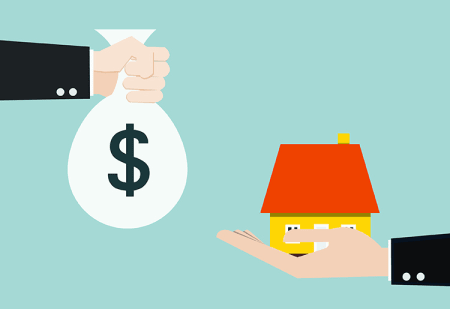Mortgage Article Library
Learn more about the mortgage process, mortgage rates, credit scores, and loan programs.
This site is a free online resource that strives to offer helpful content and comparison features to our visitors. We accept advertising compensation from companies that appear on the site. Company listings on this page DO NOT imply endorsement. We do not feature all providers on the market. Except as expressly set forth in our Terms of Use, all representations and warranties regarding the information presented on this page are disclaimed. The information, including pricing, which appears on this site is subject to change at any time.

10 Questions to Ask Your Mortgage Lender
You’ve narrowed your search down to a short list of lenders, or perhaps you’ve even been pre-qualified for a mortgage. The next part is beginning your formal mortgage application—but before you do that, it’s important to make sure you’ve prepared the right questions to ask your lender. Here are the 10 questions to ask your mortgage lender to get you started:

Mortgage vs. Mortgage Refinance - What's the Difference?
The more you understand about your home and the mortgage you pay, the easier it will be to sort through your finances and have realistic expectations for your current situation.

A Guide to Lowering Your Monthly Mortgage Payments
Your mortgage has been approved, you’ve made your down payment and paid all closing costs, and you’re ready to move into your new home. But your biggest cost is still ahead of you: your monthly mortgage payments. So, what exactly are these payments, and what can you do to make sure they cost you as little as possible?
.20201101074618.jpg)
How to Choose a Mortgage Lender for a First-Time Home Buyer
To first-time home buyers, the mortgage application process may seem like a whole new world, with different terms and rules to learn, and so many decisions to make. Home buyers not selling a home tend to have smaller down payments, and less-established credit histories. On the other hand, they may qualify for government programs to help them get into a home.

7 Factors to Consider When Choosing a Mortgage
When purchasing a home, a mortgage is almost always an inevitability. To ensure the best outcome, it’s important to plan ahead and make a decision that meets your financial and personal needs.

4 Different Ways to Leverage Your Home Equity
Building equity is important because you can tap into it to pay for major expenses such as a home remodel, credit card bills, or college tuition. The more equity you have, the more funds you can access when you need them. Buying a home and building equity is wonderful, but how do you access that cash when you need it?

Home Equity Mortgage Lenders to Consider in 2026
If you own a property, the value of that property minus the outstanding mortgage is known as equity. With a home equity loan (HEL), you put that equity down as collateral in order to borrow money.

Elections & Mortgage Rates: What Homebuyers Should Know
As mortgage rates fluctuate, Americans question how much presidential policies influence housing costs. In reality, the connection isn’t as direct as campaign speeches suggest.

First-Time Homebuyer Financial Assistance 101
Buying your first home can feel overwhelming. Finding the perfect home, putting together a down payment, and getting approved for a mortgage - it’s a lot of work and the financial burden adds up quickly. The good news is that first time buyers have special programs designed just for them. We’ll explain everything you need to know about how to qualify for them.

5 Reasons to Tap Your Home Equity
Home equity is the difference between the current market value of your home and the amount of mortgage debt owed. The amount of your home equity typically increases as you pay down the mortgage debt on your home. Home equity is a resource available to homeowners and can be useful if used properly. If you decide to tap your home's equity be sure to consider a variety of lenders and loan types.